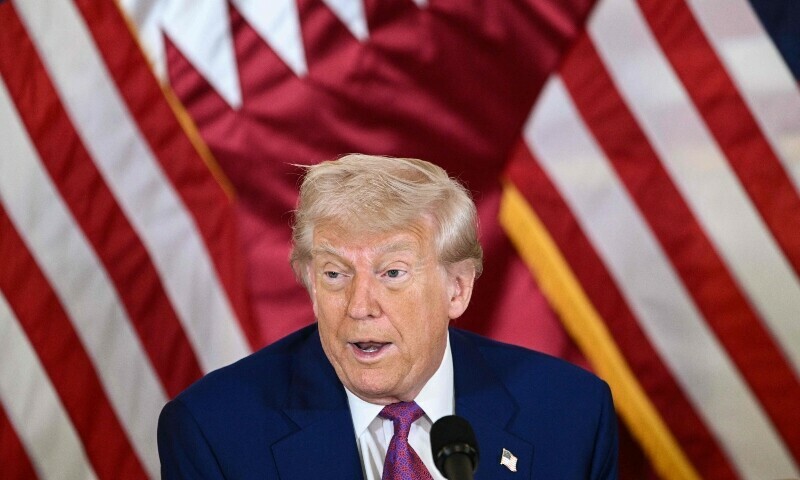US President Donald Trump said on Thursday that he spoke with Apple CEO Tim Cook and told him not to expand his production facilities in India, but to do so in America.
“I had a little problem with Tim Cook yesterday,” Trump said during his visit to Qatar.
“I said to him, Tim, you’re my friend, I treated you very good. You’re coming here with $500 billion, but now you’re building all over India,” he said, referring to Apple’s plan announced in February to invest $500bn in the US over the next four years.
Trump said he informed Cook that he does not want him to build production facilities in India, and that Apple will be “upping their production in the United States”.
The US president claimed that selling American goods in the world’s most populous country is “very difficult” because India has one of the highest tariff barriers in the world.
However, he noted that while the Asian country looks for a deal on import duties, India has offered them a “no-tariff” deal.
Trump’s remarks came after Tim Cook said earlier this month that the majority of Apple’s products to be sold in the US in the coming months will be sourced from India and Vietnam rather than China, which has been the target of US President Donald Trump’s highest tariffs.
“We do expect the majority of iPhones sold in the US will have India as their country of origin,” Cook said.
The primary production location “for almost all iPad, Mac, Apple Watch, and AirPods products sold in the US” will be Vietnam in the meantime.
Cook noted that the great bulk of all products sold outside the US will continue to be manufactured in China.
Apple is among the most impacted tech firms in the US, with its shares falling by around 5.1 per cent since the tariffs were announced.
Due to low production costs, the majority of Apple products are now manufactured in China.
The Trump administration has repeatedly stated that it wants Apple to move production to the US.
Earlier this week, the US and China agreed to a sweeping rollback of punitive tariffs for an initial 90-day period, signalling a rare moment of relief in their protracted trade conflict and raising hopes for longer-term economic stability.


